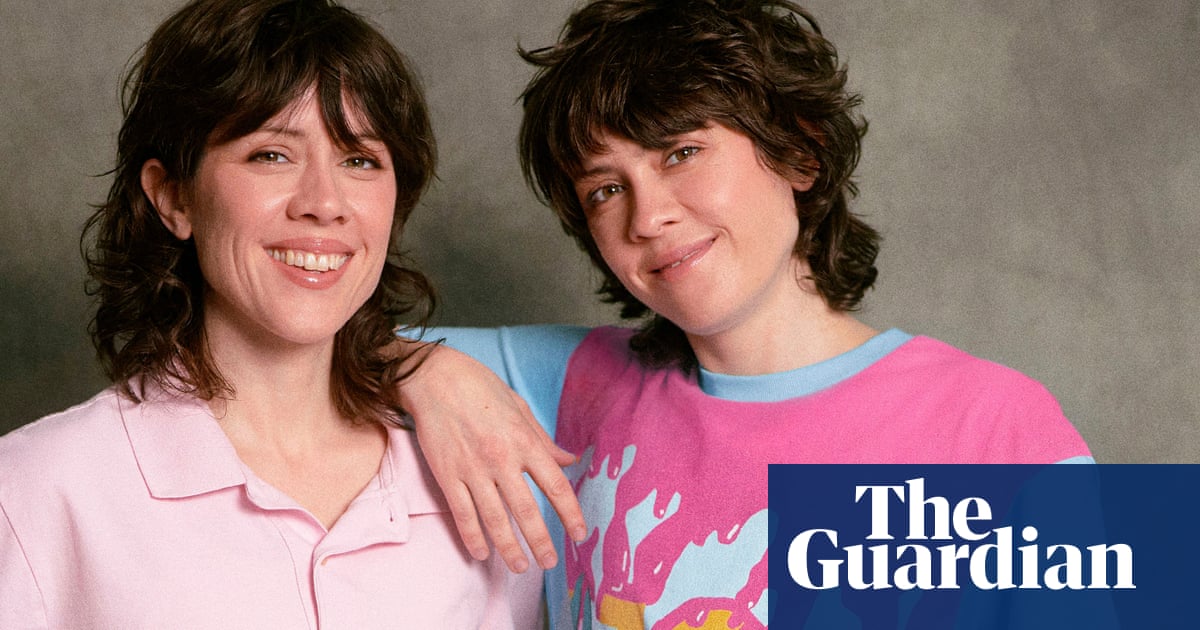
hen Pernille Harder wanted to see the benchmark for progression from hometown prospect to international star, there was only one place to look. Her potential was in little doubt by the mid-2000s but it was only when the YouTube era dawned, during her teens, that she could glimpse her future self. “It was difficult to find any women’s football on TV so the only thing I did was go online and watch clips of Marta,” she says. “She was the biggest player I knew – my idol.”
Now millions of girls can say the same about Harder, whose world-record move to Chelsea in September has put her in a position of rare influence. But she delights in the idea that nobody needs to look up only to her: that the sport has come far enough for hopefuls to take their pick from an increasingly prominent set of high-profile faces where previously few were visible.
“When I was out playing in the garden I’d say I was David Beckham or Luís Figo,” she says. “But I believe today a lot of girls regard women’s players as idols now and that’s great. If young girls are looking at me, and my path to get here, I hope they get inspired to do the same. Everything can happen as long as you work hard for it.”
The road from Ikast, her tiny birthplace plumb in the middle of Jutland, to west London was not always smooth. Harder wants to make sure the hard-won gains made across the board since her childhood are built upon and that girls aiming for a career in football find fewer barriers in their way.
“I was a bit unique in that I had ambitions in football at such an early age,” she says. “I was really motivated. But in my town the only sport they didn’t really have was women’s football: there was a girls’ team but it wasn’t at a high level, it was just for fun. So you were given the feeling that women’s football wasn’t that important. I had to fight to have the possibility to train with the boys, because you either had to fight for that or move somewhere else.”
FC Midtjylland’s academy gave her that opportunity and helped fill in the developmental gap to senior women’s football. That stage in a female player’s career is, she believes, still neglected. The Women’s Super League now runs an impressive academy programme for players aged between 16 and 21, while the FA runs regional talent clubs and advanced coaching centres for younger girls. That structure, though, has been a long time coming and it is advanced compared to most countries.
“I think it’s an area where there can be a lot of improvement,” she says. “We see a big difference at such an early age where boys have great opportunities to get into an academy and have the best coaches, to learn about football at an early age. Girls don’t have this. They’re often coached by their parents for a long time and from an early age it starts to be unequal. A lot of clubs should have their focus on it because it all starts there.”
Harder would set up her own academy in Ikast if she could although, in further evidence of the journey that remains, it is still far easier for a male player to pour resources into such a project. “If I had the money to start one there then I would do it, absolutely. It’s something I want to push for, speeding up the possibilities for clubs to get these facilities for girls.”
She has previous for making her voice heard. In 2017, soon after performing superbly to reach the European Championship final, the Denmark women’s team went on strike over a pay dispute with the Danish football association. A World Cup qualifier with Sweden was cancelled, which possibly cost them a place at the 2019 finals, and the standoff was eventually resolved with a four-year collective bargaining agreement.
“It’s not like we were proud of doing it at the time,” she says. “It would have been better if we didn’t have to at all, but we felt like we had to make a change. The feelings weren’t nice because you really just want to cooperate with your federation and go in the right direction.
“Afterwards we were proud that we had stood up for ourselves and made the change. The consequences with the World Cup were really tough but in the end it was worth it.”
That was a “special time” when not everyone in the public and media were on the players’ side. “I learned a lot as a human, I think,” says Harder. “You’re in a position where you have to take some decisions that might not be comfortable, but you need to do them anyway.”
Other players told her that she and the Denmark team had blazed a trail. The US team was embroiled in their own dispute last year and eyes are certainly now open to the fact that women’s football should no longer stand as a poor relation to the men’s game, financially or in terms of facilities. Harder recently spoke on The Football Podcast, part of Uefa’s Together #WePlayStrong campaign, and touched on a range of issues involving equality in the sport. She believes messages are getting through but that strength comes in numbers.
“I think the decision makers are listening and they feel a bigger pressure to improve things, and that’s because I feel more and more players are speaking up,” she says. “I also think we’re seeing good competition in women’s football now: you start to see a lot of men’s teams creating a women’s team because it brings value to have one.
“Things are going the right way. I would like it that everything was good tomorrow but I know that’s not the reality. We are on our way and I think, in the coming years, the development will go even faster.”
Harder is thriving at Chelsea, for whom she scored a hat-trick against West Ham on Wednesday. “Yeah, I think so,” comes the reply when asked whether her transfer from Wolfsburg could have been expected to go this well, but she stresses that her confidence is largely owing to the environment she entered. Chelsea have “an expert for everything” to support the players and she senses the team improving in every game, which is ominous for domestic opponents who can barely lay a glove on them.
It is exactly what Harder craved when, at the age of 10, she wrote about her desire to be a top-level footballer. “My sister was doing an essay in school and I wanted to do one as well so made up my own,” she says. “It’s not like any teacher was seeing it, but I gave myself a good mark, a ‘B’.” Now she is firmly in “A” territory, hoping others will reach for the stars, too.












